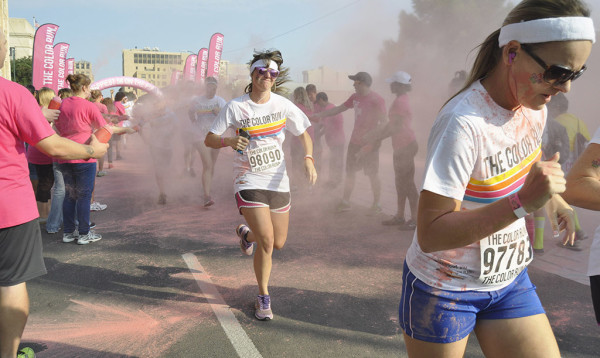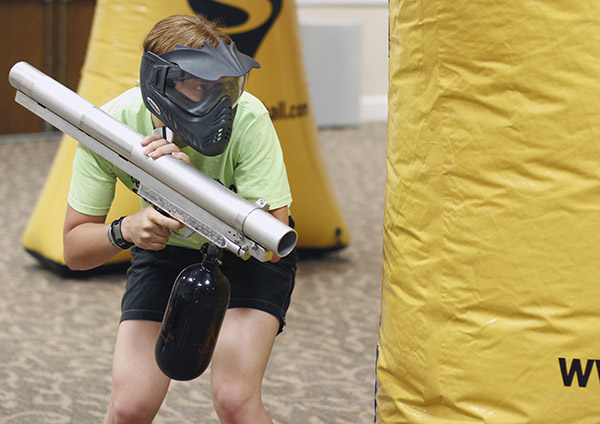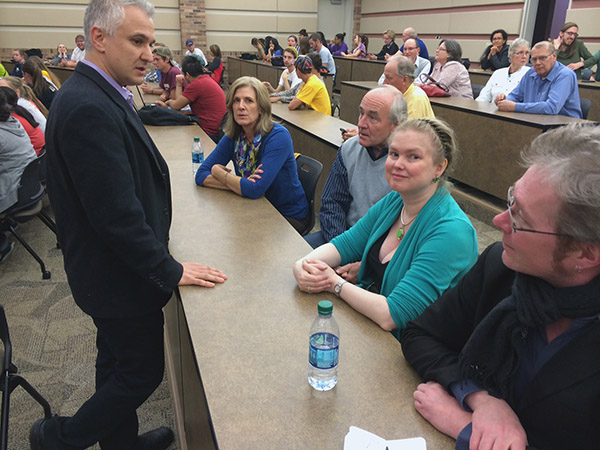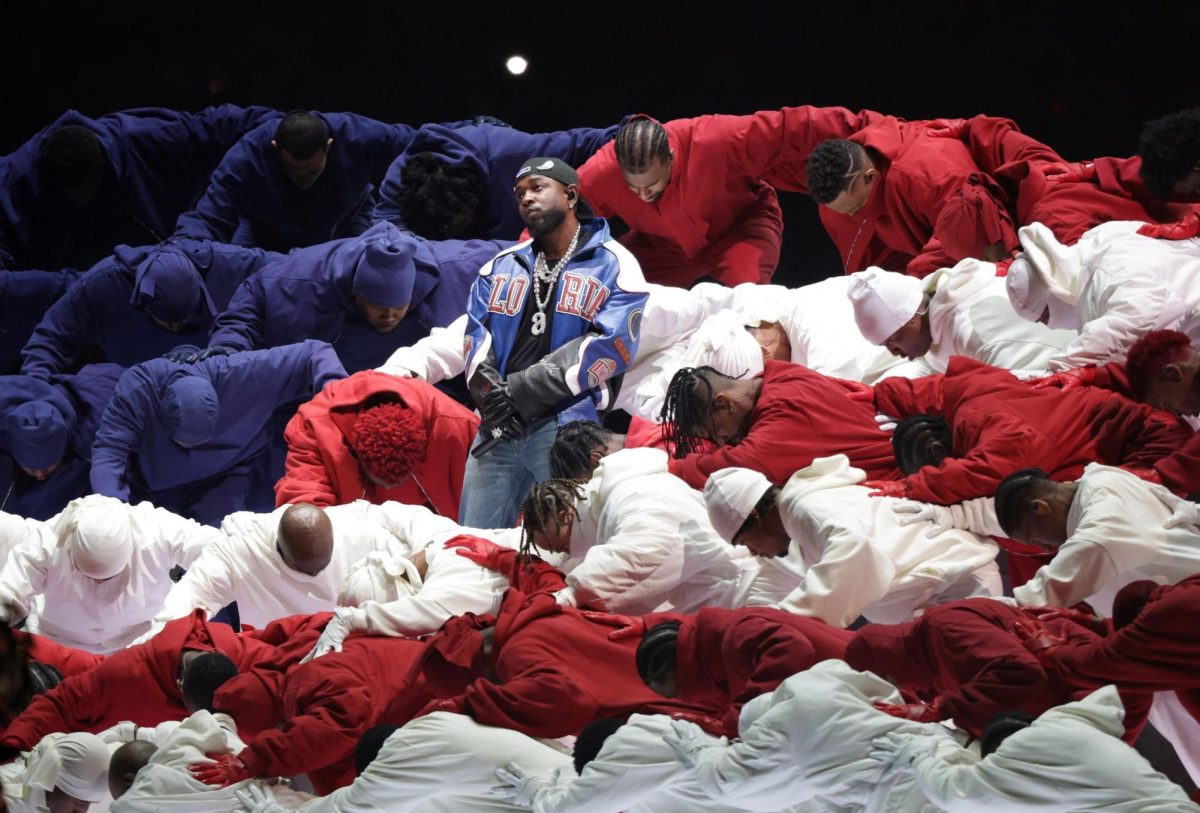
Education is not “just going to class,” according to Matthew Park, associate vice president of Student Affairs and dean of students.
“Education means a lot more that just knowing what they read and learned in the book,” he said. “We want [students] to be responsible human beings who can communicate and who can think, who can work with a group. And some of those areas, I don’t think you necessarily learn in the traditional classroom environment. You can learn those in co-curriculum experiences as well. It’s a positive thing when students get involved, meaning they find something that they are passionate and interested in, and they pursue it.”
To help students find their passion, MSU has 99 registered student organizations, of which 18 are academic, such as the Arts and Literature Society; 17 are honorary, such as the Alpha Chi honor society; seven are cultural, such as the Caribbean Students Organization, the biggest MSU group with more than 300 students; and nine are special interest, such as the Gender and Sexuality Diversity Association.
“You don’t have to be a certain person to be a part of this,” said Mike Winters, president of the Gender and Sexuality Diversity Association.
GSDA, which has about 17 members, accepts lesbian, gay, bisexual and transvestite students as well as anyone “open-minded and without a fear of labels.”
“I don’t know the sexual orientation of everyone who’s part of the group, and in all honesty, I don’t really care,” Winters said, senior in sociology.
Asked about gay marriage, Winters, who is openly gay, said he thinks “the government’s attitude toward it is not in sync with the general population’s attitude.” Winters said he didn’t know if he wants to get married, but “would at least like the option.”
GSDA has no fees and no requirements for joining. At the weekly meetings, members discuss issues such as rape and gender equality.
“We lean more towards tolerance, but full-blown acceptance is still probably a long way away,” said Winters.
The academic club Engineers for a Sustainable World meets about once a month to promote environmentalism through engineering. The group has about 15 members according to Alex Petree, mechanical engineering senior and senator of ESW.
“We help change the carbon footprint of this campus. Using knowledge of engineering we can evaluate how to save electricity on campus using solar panels and LEDs. We have goals to bring together more than just the mechanical engineers and get together students to solve issues with transportation, food, waste and water,” Petree said. “This helps us by giving us a chance to organize and complete projects and tasks. We have chances to work with people from other fields. We get an education on what being sustainable really is. And we get to enjoy the satisfaction of doing something that is bigger than us.”

The Coalition of Anime Lovers, one of MSU’s special interest groups, has about 16 members who explore animated movies as an art form.
“We’re a band of misfits,” said Justin Parnell, psychology freshman and treasurer for the Anime Club. “There’s a strong sense of family. It’s a good place to have.”
At every meeting, club members watch an anime movie, discuss the art, voice acting, message and how the film pertains to their major.
“We stick to ourselves, but every year we do fundraisers for charity and the A-KON [an annual anime-based convention in Dallas],” Parnell said.
The Coalition of Anime Lovers has no fees or requirements for joining.
“The only thing we are concerned with is recruiting new members,” Parnell said.
The Freethought Alliance, an organization with about 40 members, discusses political issues and how they pertain to religious topics.
“A lot of people think we don’t believe in anything, like morals,” said Edgar Shockley, history senior. “We just derive our morals from non-religious sources. I believe in people, the universe and philosophy.”
In spring 2014 the Free Thought Alliance and the The Philosophy Club sponsored a lecture by Peter Boghossian, philosophy instructor at Portland State University, to 120 attendees. The lecture, “Jesus, the Easter Bunny, and Other Delusions: Just Say No!” was free.
“Boghossian was one of those speakers, one of the few speakers who had serious philosophical credentials. The Internet comic The Oatmeal was a potential speaker, but that’s not acceptable to the Philosophy Club in the same way that Boghossian was,” Shockley said.

Funding
“Any registered student organization in good standing is eligible to apply for and receive funds from that account twice a semester—twice in the fall, twice in the spring,” Park said. “These funds are designed to help organizations host activities and events that the rest of the campus can enjoy and participate in, as well as group travel and development.”
The other fund for student clubs is the Student Leadership Fund, which can provide up to $250 per organization. Clubs can apply once a semester. For a club to receive SLF funds, it has to be a member of the Student Government Association and it has to have a student senator, who has to attend the SGA meetings. If a senator misses three SGA meetings, his group loses status for the remainder of that academic year, Park said.
“The benefits of involvement to a student […] are great. But when I say involvement, I’m not just talking about student organizations. Yes, we’ve got the organizations, which include the special interest groups, the academic organizations, honors societies, fraternities, sororities, sports clubs. But some students also get involved with things like music and theater. Or maybe they get a job on campus. But ultimately […] these opportunities start connecting students with each other or with faculty, staff and community members who have similar interests. And through that, they develop a stronger connection to the university, which means they can start working harder. They get better grades.”
To remain eligible for an upcoming academic year, clubs need to have four members; a member of the club has to do risk management training once a year and student organization training once a semester, said Park.
“Most of the time when organizations fall out of standing, it’s not so much about the small number of students,” he said. “But I think it really comes about to that transition of leadership and who is responsible for the organization. Because, remember, the faculty staff advisors, they are there as resources, as advocates, as supporters. But it shouldn’t be their job to keep an organization going from one year to the next. That has […] some responsibility going to the student.”
For the official recognition of a new club, MSU requires eight students who are interested in joining, one faculty sponsor, a constitution and a statement of purpose.
“Essentially, that’s kind of that document that outlines what’s the purpose of the organization, what are the rules that it will govern itself by, who is eligible for membership, what are the requirements of membership, what’s the structure of the organization,” Park said. “Once that information is together, it goes through the approval process through the Student Development and Orientation Office, then to the dean of students and then to the vice president of student affairs and enrollment management.”
Every academic year, between five and 10 new organizations are formed.
“But at the same time, we’ve got about that same number that kind of fall out of good standing, so we always have this number, usually right around a hundred,” Park said.














